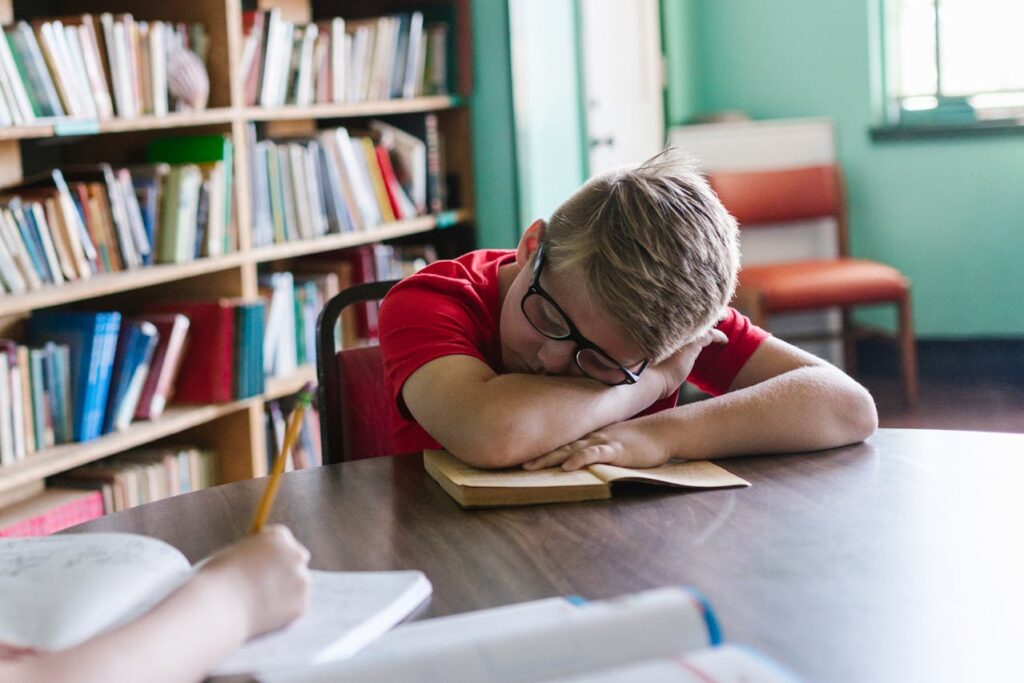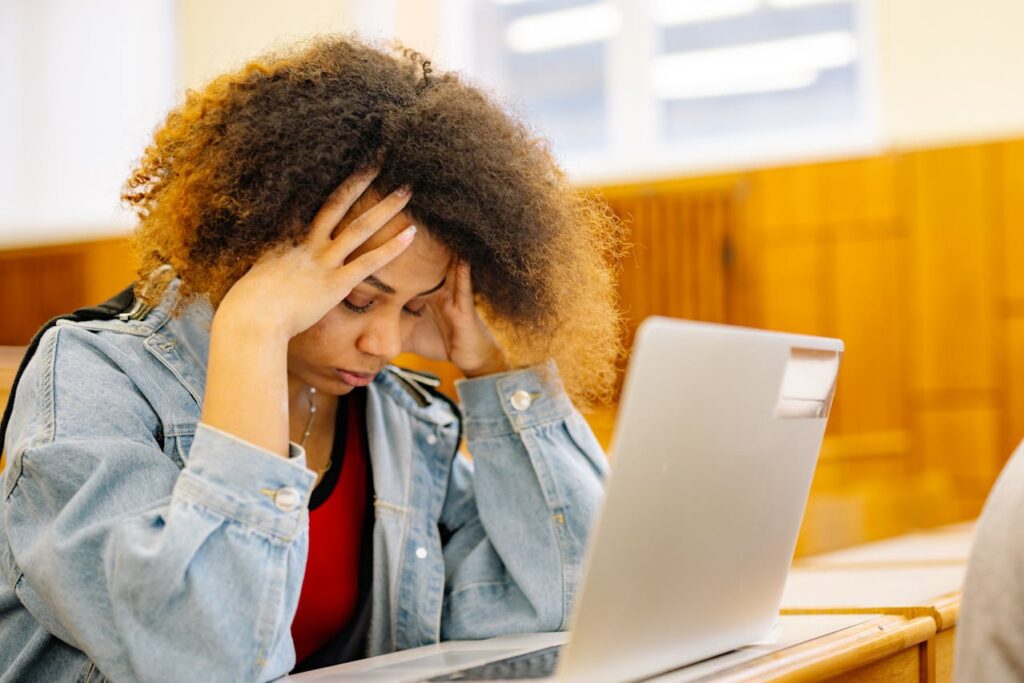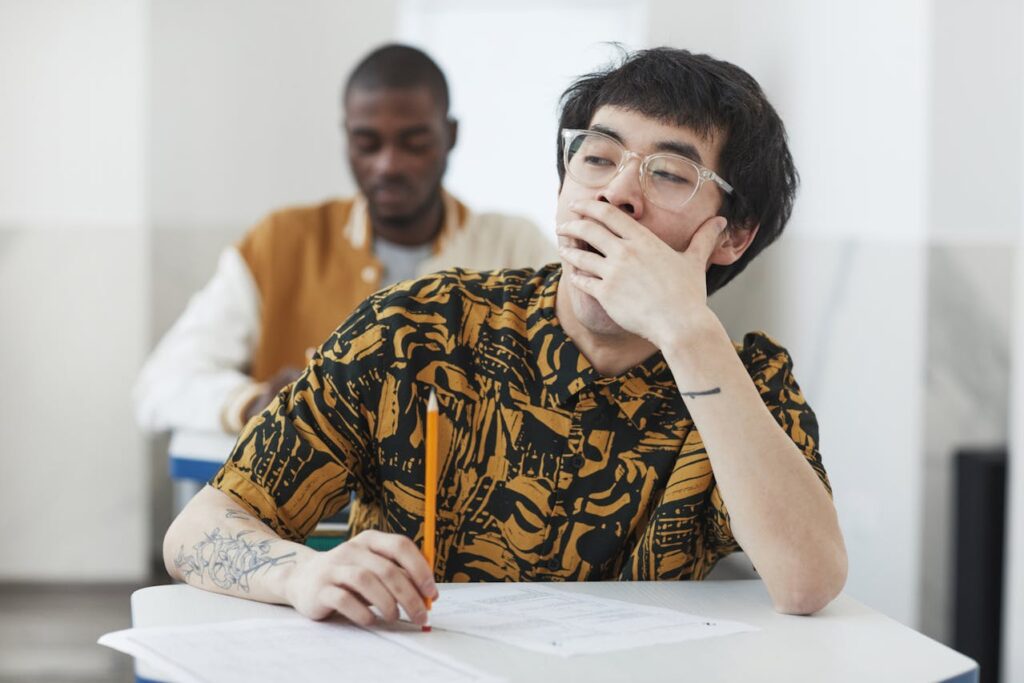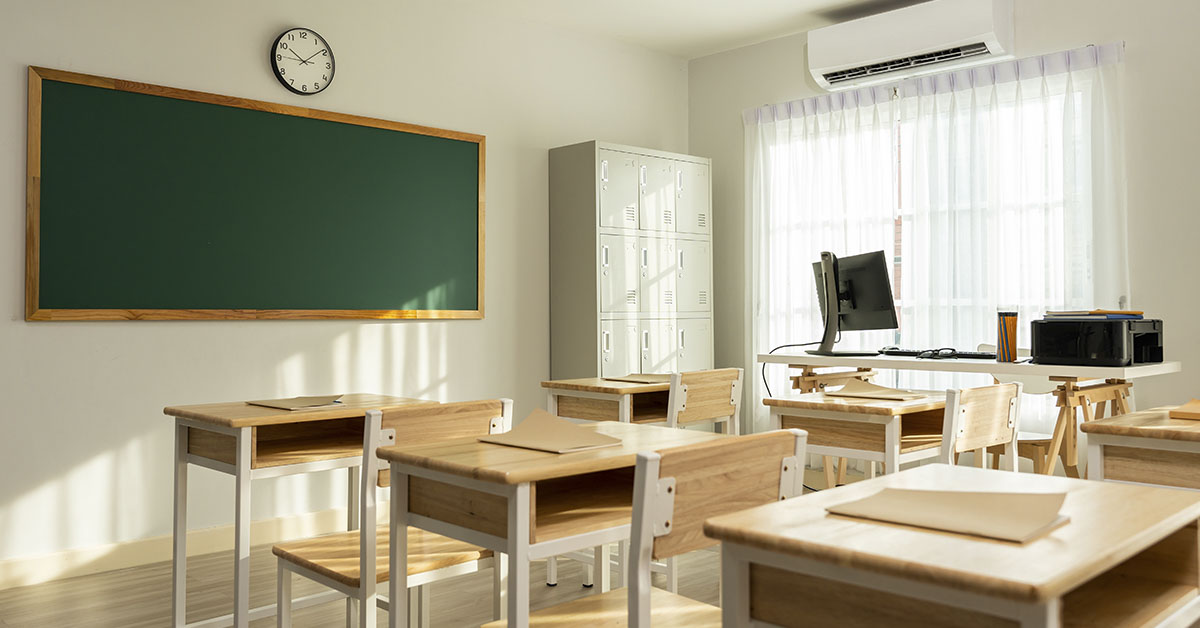Health Secretary Robert F. Kennedy Jr.’s Make America Healthy Again campaign is the subject of discussion among parents, health experts, schools, food companies, and the entire country. It is centered on combating the rise of chronic diseases, especially the ones harming children. One proposal focuses on an aspect of health that people erroneously consider secondary to diet and exercise: sleep. Kennedy incited a debated by proposing making school hours later so children and teens can sleep in. Although the students might applaud the notion, many professionals voice their opposition.
How much sleep do children and teens need?

The Sleep Foundation recommends children 6 to 12 years of age get 9 to 12 hours of sleep per night. It also advises teenagers to sleep 8 to 10 hours every night for optimal physical, emotional, and mental development. However, they have a natural tendency to stay up late because of the shifts in their biological clocks. So when they have early school times, homework, social events, and extracurriculars, they are more likely to get insufficient sleep.
The importance of sleep for teens
Sleep is vital for brain function. It promotes problem-solving, memory, focus, creative thinking, and other skills that are essential for good academic performance, hobbies, and socializing. It also supports emotional health. Lack of sleep affects mood, causes irritability, inflates emotional reactions, and enhances impulsivity and poor judgement. Long-term sleep deprivation can lead to social conflicts and mental health problems. In fact, teens suffering from sleep loss are more likely to report depression, anxiety, and suicidal thoughts. It can also impair physical development, contribute to behavioral problems, and make teens more prone to illness and obesity. It has also been linked to a higher rate of accidental injuries and risk-taking behaviors.
Chronic sleep deprivation
A couple nights of missed sleep won’t hurt most teenagers but many are not getting enough on a regular basis. According to the CDC’s Youth Risk Behavior Survey (YRBS), 72.7% of high school students reported insufficient sleep (less than 8 hours) on school nights. And according to the 2022 National Survey of Children’s Health, 37.4% of children ages 6 to 11 have insufficient sleep. Teens especially are more likely to go to sleep late because they have a sleep drive that builds slowly so they don’t feel tired until later in the evening. Plus, their bodies start producing melatonin later in the day. This biological delay along with an early wake-up time may explain why some teenagers can’t get enough sleep.
“Kids are exhausted in school”

“These high school kids are not able to be sharp and focused and to learn, it doesn’t matter how good the schools are or the teachers or the reputation,” said Jeffrey Rose, a New York-based clinical hypnotist, sleep specialist, and friend and longtime supporter of Kennedy. “Kids are exhausted in school. We need to get the kids an opportunity to get nine hours [of] sleep, which is impossible right now,” he explained to Fox News.
Read More: Student Sues School After Graduating With 3.4 GPA But Unable to Read
Mandating later school hours
Rose is the New York State legislative coordinator for Start School Later, a movement that began in 2011 that pushes for later school start times. It cites official recommendations from the CDC, American Academy of Pediatrics, among other health organizations, that middle and high schools should begin no earlier than 8:30 AM. However, many schools began at 8 AM or earlier, some as early as 7 AM. In 2022 California became the first state to legislate later start times, with middle schools beginning no earlier than 8 AM, and high schools beginning no earlier than 8:30 AM. Florida made similar mandates, set to be put into effect in 2026. Other states are discussing similar school hours bills although none of the debates have resolved as of yet.
Better outcomes for students

“There’s no greater reform we can make for high school education,” Rose said. He said that lack of sleep can lead to students using alcohol and marijuana to relax then stimulants like caffeine, Ritalin, or Adderall to focus. “When [schools start later] you get less sickness because people are showing up with strong immune systems, less absenteeism, less car accidents, better sports outcomes, better grades. Everything is performed much better.” said Rose.
Research into later school start times
One study from the University of Minnesota investigated this topic. It involved over 9,000 students in eight public high schools in three different states. It showed that schools that began at 8:30 or later allowed for at least 60% of the students to get a minimum eight hours of sleep a night. As the school switched to a start time of 8:30 or later, the researchers saw greater academic performance outcomes, better attendance rates, and reduced car crash rates of 70% The teens getting insufficient sleep reported higher rates of caffeine use, symptoms of depression, and an increased risk of unhealthy substance use.
The other side of the school hours debate
However, there are some downsides to later school start times, particularly when it comes to operational logistics and scheduling disruptions. Changing the start time will ripple into delayed after-school activities and jobs, and the routines of working parents. The California Teachers Association (CTA) and the California Schools Board Association opposed the legislation, citing the overruling of local control and ignoring parental decisions and community input. In a 2017 review of this topic, 51% of parents expressed support for later school start times, especially those with kids who attended schools beginning before 7:30 AM. They hoped it could lead to more sleep and better academic performance. However, parents who voted against the change were concerned about different transportation plans and limited time for after-school activities.
Read More: 37 States Implement Phone Restrictions or Bans in Schools

